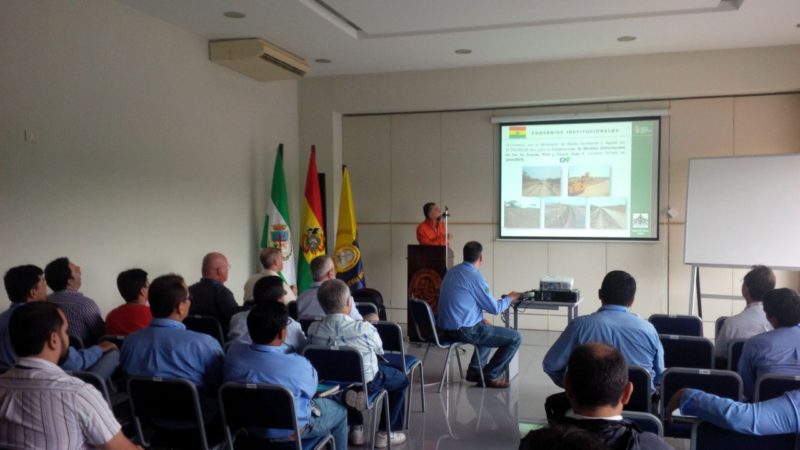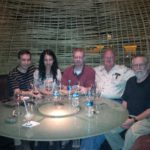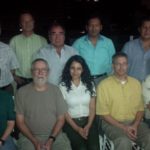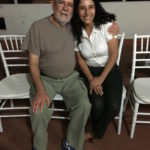
After preparations Sunday for our first full day of workshops, a crew of us went to supper (la cena) at the Asian Fusion, an interesting juxtaposition of Bolivian cuisine and sushi. Given that I was leary of anything not cooked, I elected the llama steak, which was very good. Others in our party were more adventurous. The wine was also very good.

When we broke for lunch (la almuerza), they guided downstairs to the break room. They provided very nice sandwiches (two of them, which was too much) and plenty of warm soft drinks or bottled water. I elected the water. Ing. Aguilera and one of the translators sat with us and we chatted over lunch. We were invited to Ing. Aguilera’s home for supper.
The afternoon passed quickly. My talk was right after lunch and of course the audience had food-induced coma. I was not at all surprised. I don’t remember much else about the afternoon. Perhaps I had food-induced coma as well.

We had enough people there who were conversant with English that understanding was not an issue. We chatted before supper, drinking wine and munching appetizers. Regardless, I think I would have understood Ing. Aguilera anyway. He spoke slowly and with great elocution. I could follow most of what he was saying with my few words of Spanish and by following his hands and face. He is an excellent host.

“Bolivia is a very dangerous place for a single man,” Ing. Aguilera informed me. He laughed at himself for being married not once, not twice, but four times. He told stories about himself, his life, and his work.
La cena was very interesting. I’m generally open to new foods, but couldn’t bring myself to eat the tripe or tongue. I suppose that when I return I will give both a try. Monica teased me about the traditional food and told me the tongue is really quite good. I have never eaten tongue, but have had tripe before. It’s certainly edible, but not my favorite protein source because of the texture. I can eat it, though. So, I’ll have to try the tongue.
After supper, over wine and dessert, the group chatted about water-related issues. I was impressed that technical people involved in hydrology generally have the same set of problems and concerns. It was clear from the discussion, even with the language barrier (which wasn’t that great of a barrier, really), that we share so much. The Bolivians are in a place where we here in the States were maybe 40-years ago. They have an advantage, though, in that much of the research to help them deal with their water problems has already been done. What they really lack, I think, is the institutional drive and funding to completely deal with their problems.
I was impressed that the Bolivians are intelligent, dedicated, hard-working, and capable. I left with much to think about as the evening ended too soon. Papá shooed us off to our accommodations because we had another big day to follow on Tuesday. So we said buenas noches and bid our hosts adios for the day.